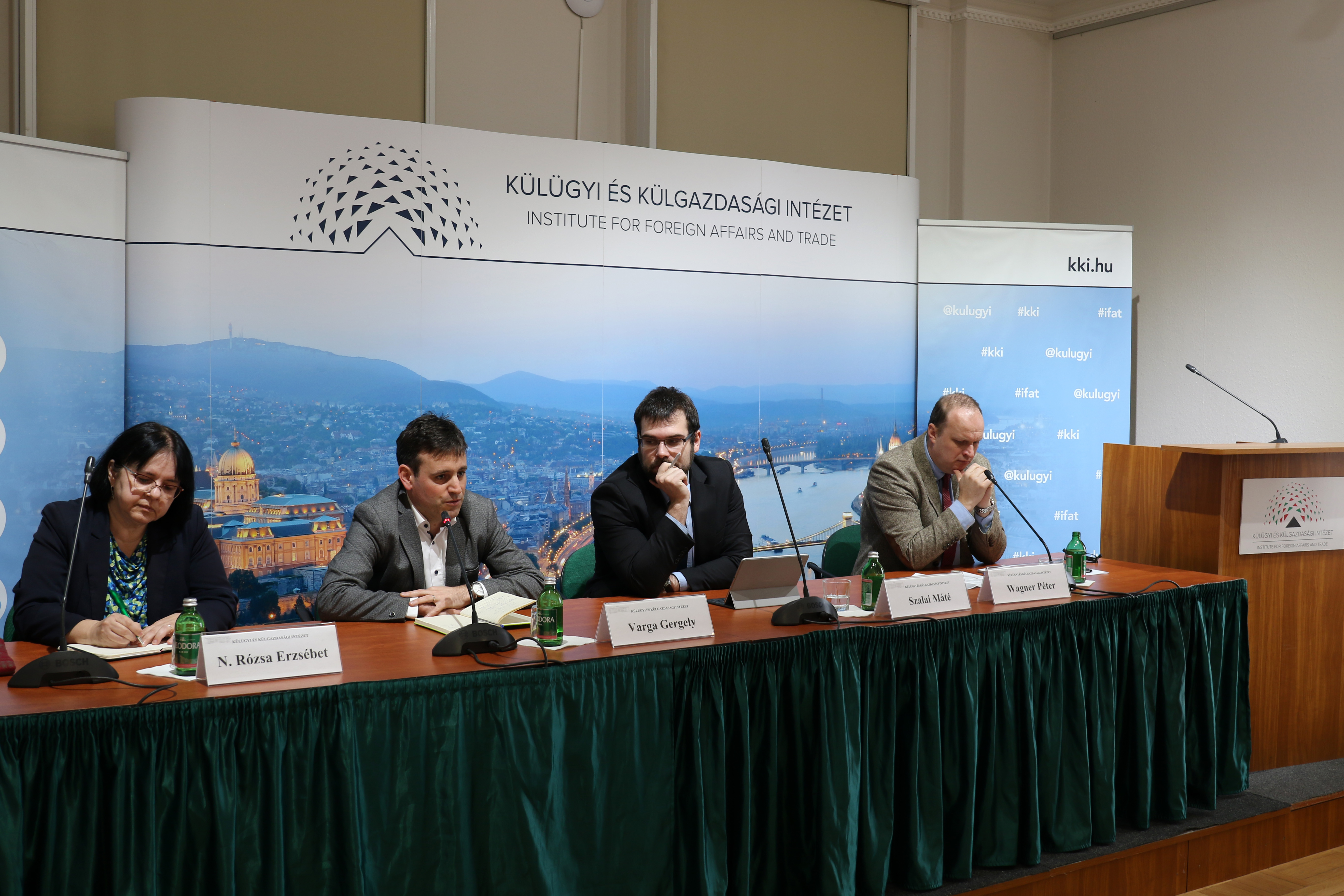On January 21, 2020, the Institute for Foreign Affairs and Trade held a roundtable discussion entitled “The Middle East after the death of Soleimani” with the participation of Erzsébet N. Rózsa (professor at the National University of Public Service and external research fellow of IFAT), Máté Szalai (senior research fellow of IFAT and assistant lecturer at Corvinus University of Budapest), and Gergely Varga (senior research fellow of IFAT). The event was moderated by Péter Wagner, senior research fellow of IFAT and senior lecturer of Károli Gáspár University of the Reformed Church.
Gergely Varga started his presentation by emphasizing that the elimination of Qassem Soleimani cannot be considered a completely unexpected turn as the possibility was on the agenda for months. The operation was authorized by the president after the attack on the American embassy in Baghdad, nevertheless it can be seen as a continuation of the escalation process since May 2018. Considering the lack of a decisive response teased by the official Irani rhetoric, he elimination of Soleimani did certainly have a deterrent effect. From a global perspective, according to Varga, the event bore a message not just to the leadership of Iran but to that of Russia and China as well.
Reflecting on the words of Gergely Varga, Erzsébet N. Rózsa highlighted that Iran would like to present itself as a responsible regional power. After the American withdrawal from the nuclear treaty, Tehran showed strategic patience and respected the agreement, nonetheless it suspended the fulfilment of its obligations in five stages. However, from the Iranian perspective, neither the United States nor European member states have met their commitments. Speaking of Soleimani, Erzsébet N. Rózsa underlined that the general played a key role in repelling the Islamic State and many Iranians consider him a national hero. As he was replaced by his deputy who used to work with him for decades, one can hardly expect any practical change. The death of Soleimani strengthened national unity in the Iranian society even if anti-governmental protests took place after authorities accidentally shot down a Ukrainian airplane.
Assessing the regional consequences of recent developments, Máté Szalai emphasized that contrary to popular belief, the assassination of Soleimani did not mark a turning point in Middle Eastern politics as it did not change either the regional balance of power or threat perceptions to a strategic extent. Regional actors formulated their responses quite slowly, which can be attributed partly to the sudden nature of the events and partly to the fact that most of them focused their attention to unrelated developments (such as the Israeli elections or the intensifying Turkish intervention in Libya). What might have changed is the perception of the two powers. While Iran strengthened its image of rationality, the United States – willingly or unwillingly – proved its unpredictability and the willingness of the usage of its hard power capabilities. These can have a positive effect on its position from the perspective of power politics. Szalai underlined the role of Iraq as a potential American withdrawal would mean a strategic victory for Iran.

